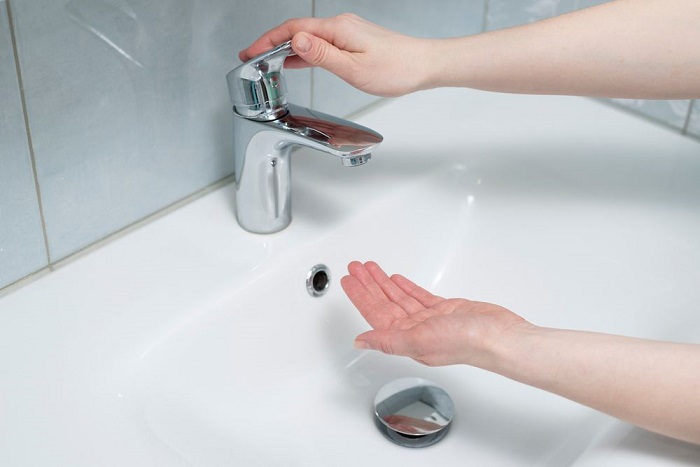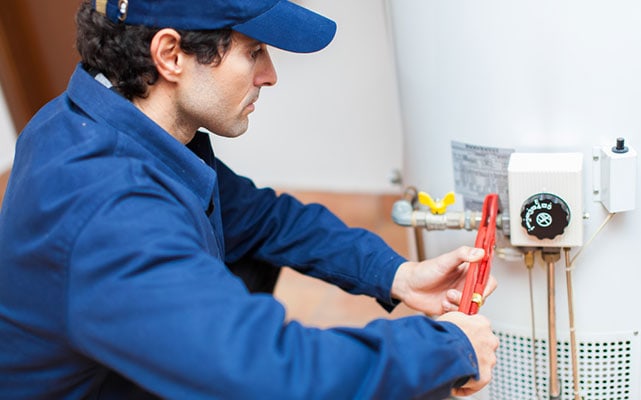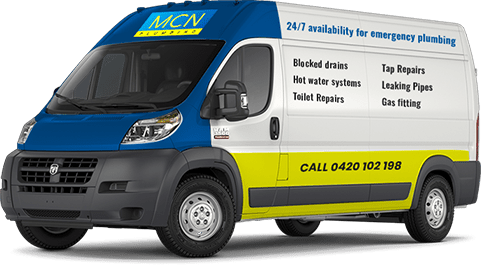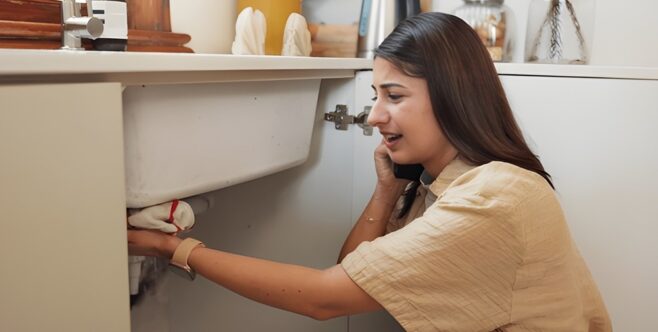A Plumber or an Electrician: Who Should You Call When Your Hot Water System Fails?
Hot water system failed? Learn whether to call a plumber or electrician, and get expert tips to restore your hot water fast.

No one likes to be left out in the cold, especially when it comes to our hot water systems. Although it’s easy to spot that something’s wrong, finding the right kind of assistance is another story.
So, when all else fails, should it be a plumber or an electrician? Or perhaps both? In this article, we’ll break down the common issues that affect hot water systems, explore what each type of professional provides, and guide you towards the best way to get the hot water flowing again.
Understanding Hot Water System Problems
Hot water systems are essential to our daily lives. Showering, washing dishes, and laundry all rely on a steady water supply. In Australia, water heating typically accounts for between 15 and 30 per cent of household energy use, and these figures illustrate just how integral it is to our routines.
But when your system fails, it’s usually one or more underlying issues causing the problem. Fortunately, you can always call on a licensed professional for help, and this goes for both electric and gas-based units. Sometimes, it’s also a great opportunity to invest in a newer hot water heater that’s more effective, powerful, and efficient.
Plumber or Electrician: Who Does What?
So, you’ve got a dysfunctional or failing hot water system, what next? From here, it’s all about figuring out who should handle the problem. If the system runs off gas, you’ll need to hire a licensed gasfitter with the proper training and accreditation, and this is nonnegotiable. Otherwise, here are some general recommendations:
When to Call a Plumber
Plumbers are the go-to professionals for the majority of hot water system issues, especially those related to:
- Leaking tanks or connections
- Low water pressure on the hot water side
- Corrosion or rust issues
- Sediment buildup and flushing the tank
- Installing or replacing water heaters
- Blocked or damaged pipes affecting flow to the system
Plumbers are trained to handle water systems, pipes, and fittings. The vast majority are also licensed to work on gas connections, making them the right choice if your system is gas-powered. When relevant, plumbers will also be able to offer advice on system replacement, select the appropriate size and type of heater for your home, then safely handle the installation process.
From hot water installation to hot water repairs, MCN has experienced plumbers available across Metropolitan Melbourne. Call us now to arrange an inspection!

When to Call an Electrician
Electricians specialise in the electrical components of a hot water system. This includes:
- Repairing or replacing faulty heating elements
- Fixing electrical faults that prevent the heater from turning on
- Inspecting and replacing thermostats and wiring
- Testing safety switches and circuits
Electricians are essential if your electric water heater isn’t functioning due to wiring or component issues, but they won’t typically address plumbing-related problems like leaks or sediment buildup.
Combined Issues
Sometimes, both a plumber and an electrician are required. For instance, an electric water heater might have a leaking tank (plumber) and a faulty heating element (electrician). In most cases, calling a licensed plumber first is the safest option, as they can often identify whether an electrical issue is contributing to the problem and refer you to an electrician if needed.
Common Signs Your Hot Water System Is Failing
Before deciding who to call, it’s definitely helpful to know the typical warning signs of a failing system. Here are some of the most frequent issues faced by Melbournians.
1. Age of the System
The lifespan of most hot water systems usually ranges from eight to ten years for gas and electric units, then up to twenty years for solar systems. As units age, their internal components wear down. At this point, efficiency drops and energy use rises. An older system may still work but struggle to keep up with demand, or tend to run out of hot water quite quickly.
If the system is nearing or has surpassed its expected lifespan, it’s often more cost-effective to consider a replacement rather than ongoing repairs. You can usually find the manufacture date on a sticker or label on the upper part of the unit.
2. Inconsistent Water Heating
Another common problem is water temperature that fluctuates unexpectedly; one moment it’s strikingly hot, the next it’s ice cold. This inconsistency usually points to worn-out heating elements, sediment buildup in the tank, or a system that simply can’t cope with peak demand. Over time, this equates to a jump in energy consumption, and additional strain on the overall system.
3. Strange Noises
If your water heater is making popping, rumbling, or banging noises, it’s often due to sediment settling at the bottom of the tank. When water heats up, the sediment moves, hardens, or traps air, creating unusual sounds. These noises aren’t just irritating. In fact, they’ll usually be an indication of a system that’s losing efficiency and could be at risk of failure.
4. Unpleasant Odours
Hot water that smells metallic or like sulphur (“rotten eggs”) is one of the most serious warning signs. Sulphur smells typically come from bacteria producing hydrogen sulphide gas, while metallic smells often indicate corrosion. A failing anode rod is a common cause of both problems, as it allows rust and bacterial buildup to occur in the tank.
5. Low Hot Water Pressure
If the hot water tap only delivers a trickle or has noticeably low pressure, sediment or blockages in the tank or pipes could be the culprit. Unlike general plumbing issues that affect both hot and cold water, pressure problems that occur exclusively with hot water usually point directly to the heater.
6. Leaks
Even minor puddles around the base of your hot water system can indicate serious problems. Cracks, pressure valve issues, or loose fittings can all cause leaks. Once a tank starts leaking, repairs are rarely sufficient; replacement is usually the safest option to avoid water damage.
7. Rusty or Discoloured Water
Brown or red hot water often signals corrosion inside the tank. If the anode rod has failed, the tank is likely rusting from the inside. This will inevitably lead to leaks and further system failures.
8. Rising Energy Bills
If you notice your water, gas, or electricity bills creeping up without explanation, it may be due to an inefficient or failing hot water system. Older systems require more energy to heat water, and replacing them with modern, energy-efficient models can significantly reduce household costs.
Concerned about your unit? Whether it’s a hot water system in Balaclava or Nunawading, you’re in safe hands with our seasoned plumbing experts!
Practical Solutions: Exploring Your Options Before Calling a Professional
While a plumber or electrician may ultimately be needed, there are still a few checks and small actions at your disposal. Most notability, these are:
- Checking the main water valve: Ensure it’s fully open. Even partially closed valves can reduce hot water pressure.
- Inspecting taps and fittings: Loose or blocked fittings may restrict flow.
- Looking for visible leaks: Small puddles under the system indicate a problem that shouldn’t be ignored.
- Checking the age of your system: If it’s near the end of its lifespan, replacement may be more cost-effective than repair.
Keep in mind, these steps won’t solve major issues, but they often help to narrow down the underlying cause and prevent unnecessary service calls.

Options for Replacement
If your hot water system is old, inefficient, or repeatedly requiring repairs, replacement is often the best long-term solution. There are several options, depending on your household’s needs, budget, and environmental considerations:
Gas or Electric Storage Systems
Traditional storage heaters are reliable and straightforward. They store hot water in a tank and are suitable for most households.
Heat Pump Water Heaters
These systems use ambient air to heat water, making them highly energy-efficient. They are particularly well-suited to Melbourne’s climate and can lead to significant savings over time.
Solar Hot Water Systems
Solar systems offer the longest lifespan (often 20+ years) and are the most environmentally friendly option. They reduce running costs but require adequate roof space and sunlight exposure.
Instantaneous / Continuous Flow Systems
These heaters provide hot water on demand, without storing it in a tank. They are space-saving and energy-efficient, but performance can vary depending on household usage patterns.
Maintenance Tips to Extend the Life of Your System
Even a high-quality water heater will benefit from regular maintenance. This can prevent minor problems from turning into major failures:
- Annual tank flushing: Removes sediment and prevents strange noises, inconsistent heating, and low water pressure.
- Check and replace anode rods: Prevents corrosion and extends tank life.
- Inspect valves and fittings: Ensures there are no leaks or loose connections.
- Monitor water temperature and pressure: Fluctuations can indicate early signs of wear or blockages.
We recommend a routine service every one to two years to keep your system in top condition and prevent sudden breakdowns.
Choosing Between Repair and Replacement
When faced with a failing hot water system, homeowners often ask whether to repair or replace. Consider the following:
- Age of the system: Older systems approaching or beyond 10 years are better replaced.
- Frequency of repairs: Constant fixes indicate the system is reaching the end of its useful life.
- Energy efficiency: Modern heaters use less energy and can reduce utility bills.
- Type of problem: Leaks, severe corrosion, or faulty tanks usually require replacement, whereas heating element issues or minor sediment buildup can often be repaired.
A licensed plumber can provide a professional assessment and guide you to the most cost-effective and reliable solution.

MCN Plumbing: Melbourne Based Hot Water Experts
At MCN Plumbing, we know how disruptive a failing hot water system can be. That’s why we offer:
- Same-day services across Melbourne, from Ashburton to Epping and South Yarra
- $0 callout fees and transparent pricing
- 24/7 emergency plumbing services for urgent issues
- Repairs for all major brands, including AquaMax, Rinnai, Vulcan, Rheem, and Bosch
- Installation of new systems, whether gas, electric, heat pump, solar, or instantaneous
- Expert advice on repair vs replacement to help you make informed decisions
No matter the problem, be it leaks, low pressure, rusty water, strange noises, or rising energy bills, our licensed plumbers are ready to lend a helping hand. Simply give us a shout and we’ll send a knowledgeable expert to your door in no time!

 0420 102 198
0420 102 198



